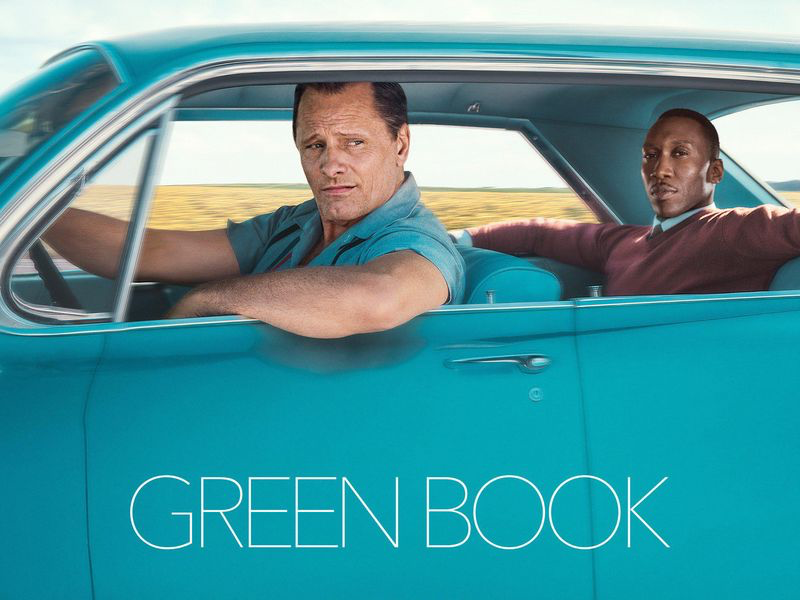Green Book (2018) Movie Review: A Journey of Friendship and Understanding
Read my in-depth review of Green Book (2018), a powerful road-trip film that explores themes of friendship, race, and personal growth. Featuring brilliant performances by Viggo Mortensen and Mahershala Ali, this movie balances humor and heart with historical reflection.

Directed by: Peter Farrelly
Starring: Viggo Mortensen, Mahershala Ali, Linda Cardellini, Dimiter D. Marinov, Mike Hatton, P.J. Byrne
Written by: Nick Vallelonga, Brian Hayes Currie, Peter Farrelly
Produced by: Jim Burke, Brian Hayes Currie, Peter Farrelly, Nick Vallelonga, Charles B. Wessler
Rating: ★★★★★
Every once in a while, a film comes along that blends humor, heart, and history in a way that feels effortless. For me, Green Book was one of those films. Directed by Peter Farrelly, this 2018 movie takes us on an unforgettable journey across the racially segregated American South of the 1960s. With powerful performances from Viggo Mortensen and Mahershala Ali, it’s a film that left me reflecting on friendship, prejudice, and the quiet strength needed to bridge social divides.
The story follows Tony Lip (Mortensen), a rough, streetwise Italian-American bouncer from the Bronx, who is hired to be the chauffeur and bodyguard for Dr. Don Shirley (Ali), a world-class Black pianist. The two men couldn’t be more different—Tony is loud, brash, and unrefined, while Dr. Shirley is elegant, cultured, and reserved. Their dynamic starts off tense and awkward, but as they face hostility, discrimination, and personal challenges on the road, a deep friendship begins to form.
What stands out most about Green Book is how it balances lighthearted moments with heavy themes. There are plenty of humorous scenes—Tony’s reactions to Dr. Shirley’s refined tastes, for example—but the film never lets us forget the grim reality of Jim Crow-era America. We witness Dr. Shirley being denied basic rights and treated with cruelty, even as he’s celebrated for his music. It’s through these painful experiences that Tony begins to understand the extent of the systemic racism his companion faces daily.
Mahershala Ali’s portrayal of Dr. Shirley is both powerful and deeply moving. His character is a man caught between worlds—too “white” in the eyes of some Black communities and never fully accepted by white society. Ali brings a quiet dignity and emotional vulnerability to the role, conveying so much with just a glance or a pause. Mortensen, meanwhile, gives Tony a raw, authentic charm. His character arc—from ignorance to empathy—is handled with care and subtlety.
The film’s title, Green Book, refers to the real-life guidebook that Black travelers used to find safe accommodations and businesses in a segregated America. It serves as a sobering reminder of how recent this history is and how many people still carry its wounds.
While Green Book has faced some criticism over its handling of racial themes and historical accuracy, I believe it succeeds in telling a compelling story of human connection. It doesn’t offer perfect answers to complex issues, but it invites viewers to think critically about empathy, privilege, and growth.
By the end of the movie, I felt genuinely moved. It’s rare to find a film that can make you laugh, cry, and reflect all at once. For that, I give Green Book a full five stars. It’s a road trip movie with real substance—a reminder that sometimes, the most transformative journeys aren’t just about where you’re going, but who you’re with along the way.